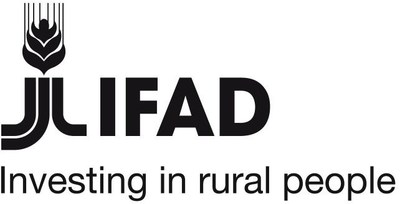ROME , June 16, 2021 /PRNewswire/ -- Despite a massive increase in migrants sending money home via digital transfers due to the COVID-19 pandemic, millions of their rural family members struggle to access mobile banking services which could help lift them out of poverty. The President of the UN's International Fund for Agricultural Development (IFAD) today called for urgent investments in digital infrastructure and mobile services in developing countries to ensure rural families are not left behind.

"Migrants have shown their continued commitment to their families and communities during the pandemic with more remittances transfers made digitally than ever before," said Gilbert F. Houngbo , President of IFAD, speaking on the International Day of Family Remittances . "Unfortunately, families in rural and remote areas - where remittances are a true lifeline - battle to access cash outlets or alternatives such as mobile money accounts. Governments and the private sector need to urgently invest in rural digital infrastructure to address this."
Mobile remittances increased by 65 per cent last year, rising to US$12.7 billion . This change was driven by a switch from cash due to lockdowns that limited informal channels and social distancing rules. In spite of the global economic recession due to the pandemic, migrants continued to send money home, with remittances in 2020 reaching $540 billion – a drop of only 1.6 per cent compared to the previous year.
However, in many countries, people living in remote rural areas have sparse local access to banking services or limited mobile connectivity. In addition, there is a limited availability of agents offering mobile money services such as pay outs in cash.
"While the pandemic accelerated the adoption of digital transfers and mobile money accounts, it also highlighted pervasive gender inequality," said Pedro de Vasconcelos , the head of IFAD's Financing Facility for Remittances. "Research shows that women are 33 per cent less likely than men to have a mobile money account. We must focus on closing the gap by addressing the barriers that prevent women from accessing and using mobile financial services."
Digital transfers are cheaper than traditional cash transfers, and mobile banking services provide the opportunity for migrants and their families to access financial products such as savings, loans and insurance.
Contacts:
Antonia Paradela
a.paradelatorices@ifad.org
Mobile: +34 605398109
www.ifad.org
 View original content to download multimedia: http://www.prnewswire.com/news-releases/lack-of-digital-infrastructure-risks-leaving-millions-of-rural-families-in-poverty--ifad-makes-urgent-call-on-international-day-of-family-remittances-301313140.html
View original content to download multimedia: http://www.prnewswire.com/news-releases/lack-of-digital-infrastructure-risks-leaving-millions-of-rural-families-in-poverty--ifad-makes-urgent-call-on-international-day-of-family-remittances-301313140.html
SOURCE International Fund for Agricultural Development